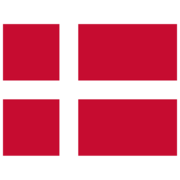Fiscal subject related
The short answer is yes. Under the Consumer Protection Regulation, even if a company is not within the purview of fiscalization, it is still mandatory for them to provide proof of purchase. In Denmark, this document is termed a "simplified receipt." Though not as intricate as receipts from businesses under fiscalization, the simplified receipt serves as a legitimate record of a transaction.
While the layout of the simplified receipt is not strictly prescribed by law, there are mandatory elements that must be included to ensure its validity:
- Issue Date: The date on which the transaction took place.
- Consecutive Number: A unique number, which can be based on one or more series, to distinguish the receipt from others.
- Seller Details: This includes the registered company's (seller's) registration number, name, and address.
- Transaction Details: A description detailing the amount and nature of the delivered goods or the scope and nature of the services provided.
- Financial Details: The total amount and the specific amount of tax payable on the transaction.
One of the conveniences of the simplified receipt system is its flexibility. It can be issued from any cash register or as a manual receipt written by hand.
In conclusion, companies outside of the fiscalization scope in Denmark still have to issue simplified receipts to their customers, unless they use a sales registration system and issue a regular receipt to the buyer.
Other news from Denmark
New document was uploaded: EV-chargers from the Fiscalization Perspective in Denmark
 Denmark
Author: Ivana Picajkić
Denmark
Author: Ivana Picajkić
The purpose of this document is to explain rules regarding the treatment of EV chargers for electric vehicles in Denmark in relation to fiscalization. The document will explain whether they are subjects of fiscalization or not, whether there are some special rules and regulations, or if there are some special rules. Read more
Subscribe to get access to the latest news, documents, webinars and educations.
Already subscriber? Login


Denmark’s Economic Council Rejects Lower VAT on Groceries
 Denmark
Author: Ivana Picajkić
Denmark
Author: Ivana Picajkić
Denmark’s Economic Council advises against lowering VAT on food, citing high costs, management difficulties, and minimal benefits for needy households. They recommend direct financial support for low-income families and subsidies for healthy food instead, emphasizing the simplicity of Denmark’s current single VAT rate of 25%. Denmark’s top economic advisers have warned against lowering VAT o... Read more



Denmark Introduced New Coins Featuring the Current Monarch
 Denmark
Author: Ivana Picajkić
Denmark
Author: Ivana Picajkić
Denmark introduced redesigned coins on December 2, 2025, featuring King Frederik X through updated portraits and monograms, along with a new symbol inspired by the octagonal layout of Amalienborg Palace Square. The new designs apply to the 20-, 10-, 5-, 2-, and 1-krone coins, while all existing coins remain legal tender and continue to circulate. Danmarks Nationalbank introduced new Danish coins i... Read more



What’s Changing in Denmark: New E-Invoicing, SAF-T 2.0, and ViDA Requirements
 Denmark
Author: Ivana Picajkić
Denmark
Author: Ivana Picajkić
Denmark, like many EU countries, is gearing up for major regulatory changes such as VAT in the Digital Age (ViDA). The country is moving toward a more automated digital economy by updating its e-invoicing standards, strengthening digital bookkeeping rules, and aligning national systems with future EU requirements . Modernising e-Invoicing standards Denmark is updating its national docume... Read more



Denmark Announces New Nemhandelsregister Update
 Denmark
Author: Ivana Picajkić
Denmark
Author: Ivana Picajkić
Denmark has announced a new Nemhandelsregister (NHR) update—covering NHR Core, API, SMP, and PoRS—bringing stability, security enhancements, and a key fix ensuring the validator now correctly handles overlapping profiles. The release, deployed to demo on 19 November and expected in production on 26 November 2025, may cause brief disruptions but requires no actions from market participants. The Dan... Read more



Denmark Releases Updated OIOUBL Schematron
 Denmark
Author: Ivana Picajkić
Denmark
Author: Ivana Picajkić
The Danish Business Authority released OIOUBL 2.1 schematron version 1.16.0, enhancing e-invoice data quality with CO2 data checks and stricter currency code controls. Implementation is required by November 27, 2025. The Danish Business Authority has released version 1.16.0 of the OIOUBL 2.1 schematron as a final version. The update is minor and focuses on improving data quality in e-invoices. Th... Read more



Denmark: Sale of Christmas Calendars is VAT Exempt
 Denmark
Author: Ivana Picajkić
Denmark
Author: Ivana Picajkić
The Danish Tax Council has classified Christmas calendars involving discounts and prize draws as a single, composite service exempt from VAT, treating them as lotteries. Read more
Subscribe to get access to the latest news, documents, webinars and educations.
Already subscriber? Login

